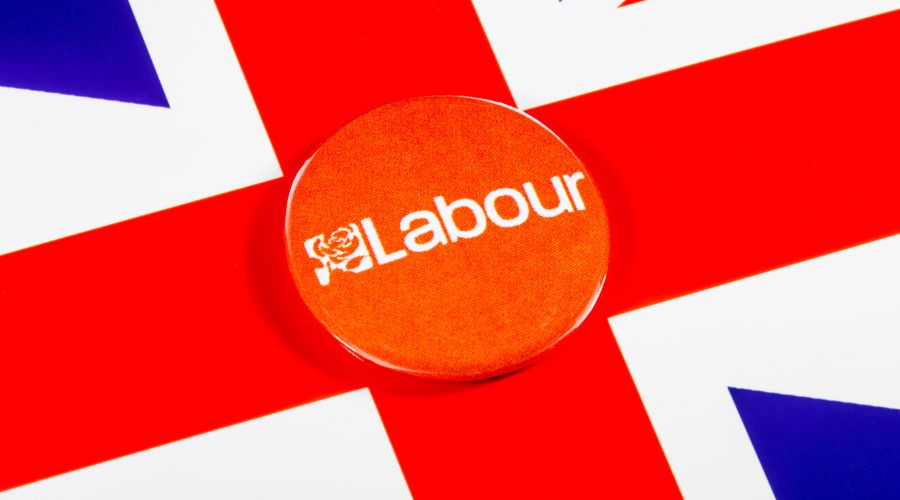What does a Labour government mean for farming?
5th July 2024
As Keir Starmer becomes the UK’s next prime minister, a Labour government is likely to signal a period of significant change for farmers.

After 14 years in power the Tories have suffered the worst election defeat in their history, losing 251 seats.
Labour gained more than 200 seats, reaching 412 in total, while the Conservatives have 121 and Liberal Democrats 72.
A number of MPs with agricultural links lost their seats in the election, including former farming minister Mark Spencer and environment minister Rebecca Pow.
Former Defra ministers including Therese Coffey, Victoria Prentis, Ranil Jayawardena, Liz Truss and Theresa Villiers all lost their seats.
However, the former environment secretary Steve Barclay held his seat in north east Cambridgeshire.
Rishi Sunak has said he will step down as leader of the Conservatives, once a new leader is found.
So what has Labour said about food and farming?
In its manifesto, Labour said it would set a target for half of all food purchased across the public sector to be locally produced or certified to higher environmental standards.
The party also pledged to introduce a land-use framework and ‘make environment land management schemes work for farmers and nature’.
On trade, the party said it would publish a strategy that promotes the highest standards when it comes to food production.
However, the manifesto refers to the badger cull as ‘ineffective’, promising to work with farmers and scientists to eradicate bovine TB and end the cull.
The party also wants to improve responsible access to nature through the creation of nine new national river walks, three new national forests and the expansion of wetlands, peatlands and forests.
Additionally, there are plans to upgrade national transmission infrastructure to improve grid connections.
There have also been rumours that the party could impose inheritance tax on farms, though this has not been confirmed by the party.
READ MORE: General election: What is each party promising farmers?
READ MORE: Farmers lit bonfires to highlight lack of attention amid general election
A Labour government is not unexpected
Whilst rural polls suggested disillusionment with the Tories – in large part due to the fall-out from Brexit – Labour was criticised for its 87-word manifesto on farming.
Commenting on Labour’s victory, Bruce Masson, farms & rural business partner at Larking Gowen said:
“The general election victory for Labour was not unexpected but with so few pre-election promises and information provided by all parties, we will have to see what the coming months have in store for changes and policies that will be implemented.”
Two key policies missing from Labour’s manifesto were capital gains tax (which had been at an historic low) and inheritance tax, which is long overdue reform.
“But the likelihood is both will increase in the next government which will be of concern to many,” Mr Masson noted.
“Historically, the farming industry has performed well under Labour governments and we would welcome this historic trend to continue,” he continued.
“This will require a clear and bold vision for the rural economy which can embrace both food production and environmental concerns effectively which is not short-term in its approach and one that all parties in the future can support and genuinely ‘Back British Farms’.”
A reset moment for agriculture
Meanwhile, NFU president Tom Bradshaw said this is a “reset moment” for British agriculture.
While Labour’s manifesto recognised that food security is national security, business confidence is key.
What British farmers and the public need are “practical policies that revitalise farm business confidence and deliver on our shared mission of food security,” he stressed.
Mr Bradshaw said the number one priority of this Labour government must be setting an increased multi-year agriculture budget for the duration of the next parliament.
Key policies in Labour’s manifesto that need actioning are: ensuring that ELM schemes work for all farmers, setting core standards for food imports and legislation to boost public procurement.
Other issues which need greater recognition are: a fit for purpose Seasonal Workers Scheme, effective import controls, supply chain fairness, investment in infrastructure and flexibility in planning.
Mr Bradshaw also noted that the latest science suggests a 56% decline in TB outbreaks, so continuing with an effective eradication plan is essential.
Cautious welcome
The National Sheep Association has cautiously welcomed the new Labour government.
Chief executive Phil Stocker noted that the Labour manifesto was short on detail and depth, and said current agricultural budgets are inadequate.
He added: “We want to start that stability with continuity with the shadow team that has engaged so far with industry. A change of personnel into these roles will not be welcomed.”
NSA priorities include a commitment to increasing the agricultural budget across the nation and recognition of food production as a public good.
Additionally, it wants appreciation of the value of grazed livestock as a multi-functional farming and land management activity.
Plus, clear support for new entrants and a commitment to reviewing carbon offsetting, biodiversity net gain, and nutrient neutrality policies.
“Government of service”
Accepting responsibility for the Tories’ defeat, Rishi Sunak said last night (4th July): “The British people have delivered a sobering verdict tonight, there is much to learn… and I take responsibility for the loss,” BBC News reported.
Mr Sunak said power would change hands “in a peaceful and orderly manner, with goodwill on all sides. That is something that should give us all confidence in our country’s stability and future”.
In his first speech as prime minister Sir Starmer promised to build a “government of service”, to restore trust in politics and “navigate away to calmer waters”.
Article sponsored by Larking Gowen.
Read more political news.

